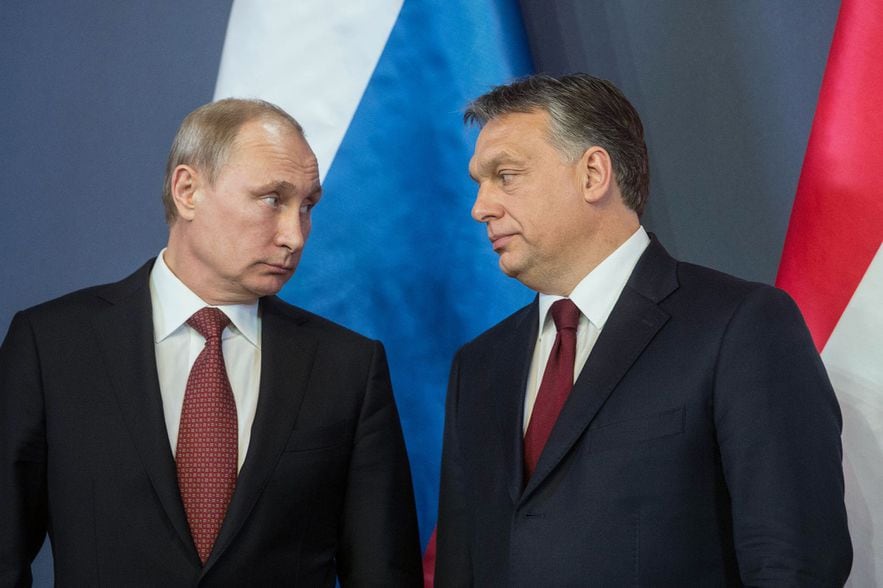Based in the United States, where she scrutinizes the upheavals of American politics and their impact on the world scene, international relations specialist Tara Varma is passing through Paris, in the midst of political upheaval. The visiting researcher at the Brookings Institution closely observes the internal chaos gripping France, in the middle of an intense international sequence, between the commemorations of the 80th anniversary of the D-Day landings, the G7 in Italy and the distribution of European “top jobs” .
The NATO summit in Washington DC promises to be the high point of this Western sequence, decisive in the fight against the imperialist aims of Vladimir Putin. It will take place on July 9, two days after the second round of legislative elections which, according to polls, could give an absolute majority to the far right. According to Tara Varma, French diplomacy is already suffering from the effects of the dissolution of the National Assembly decided by Emmanuel Macron. Interview.
Are the dissolution of the National Assembly and this legislative campaign already weakening France on the international scene?
Tara Varma Absolutely. Abroad, no one knows who will speak for the French state in the near future: foreign policy is part of the “reserved domain” of the head of state, so the decision-making process will probably remain in the hands of Emmanuel Macron and the diplomatic cell of the Elysée. However, if the National Rally [RN] wins and we have a Prime Minister from his ranks, we will be in a situation of cohabitation very different from those we have had in the past. Between the classic parties of government, there were disagreements between the right and the left on questions of foreign policy and it happened to observe Franco-French clashes at the European councils in Brussels.
But today, the position of the head of state on Europe and on foreign policy is diametrically opposed to that of the RN. If he wins, our European partners will hear once a quarter what our president says in Brussels. Then once a month, at the Foreign Affairs Council, they would have an RN minister giving a very different speech in Brussels…
Ukraine appears to be the main point of foreign policy disagreement between the president and the RN. What consequences would cohabitation have on this issue?
This will be the first subject of confrontation. With an RN government, it will probably be the end of French military aid to Ukraine, but also the end of European financial and material support for Ukraine, and the end of support for accession negotiations to the Union. European. These are not differences of nuance but incompatible and irreconcilable positions! Who represents France in this situation, the government or the president? It will be on the order of shared competence and Emmanuel Macron will be able to say a lot of things, but if ever the government is National Rally, they will also have the budget in their hands.
This lack of visibility and predictability is of great concern to our European partners. The American partner too, which counts on France, the only nuclear power in the European Union, one of the most developed armies and intelligence systems in Europe. The question of the reliability of the French partner arises, particularly on the issue of the Israeli-Palestinian conflict. Paris is one of the capitals in which the Americans meet their partners in the Arab world to discuss: will an RN government allow this type of meeting to take place?
The Elysée affirms that Foreign Affairs and the army, therefore military aid to Ukraine, are part of the “reserved domain” of the President of the Republic. Is it that clear?
The question of budget is essential. The Elysée effectively keeps the decision-making process but has no budget. We don’t know how it will happen: all the scenarios we are considering, from the least negative to the most negative, lead to chaos. And therefore to the unpredictability of France.
The Elysée can say that it will keep control over the international sphere but, in the event of a victory for the RN, the voice of this party will count on the conduct of foreign affairs. The RN wants to weigh in on these subjects, he has worked specifically in this area. Until June 17, their online program indicated that they were still in favor of creating an alliance with Russia. This page has just been removed from their site but we do not know what will replace it.
One of the hypotheses circulating consists of wondering whether the RN, once elected, would adopt a strategy similar to that of Giorgia Meloni in Italy. When she came to power, she was both anti-EU and anti-NATO. Out of pragmatism and opportunism, she renounced the anti-NATO or pro-Russia side, which allowed her to acquire the trust of the Americans. But Meloni was thus able to continue working very actively to break European unity, to prevent European projects from moving forward, to impose a much harsher migration policy. She did what she planned at the national level, attracting relatively little criticism. The RN also wants to buy a veneer of respectability.
Ukrainian President Volodymyr Zelensky welcomed by Italian Prime Minister Giorgia Meloni at Borgo Egnazia, June 13, 2024 in Italy
© / afp.com/Mandel NGAN
Can the RN find itself in a situation comparable to that of Meloni? His party has never been financed by a Russian bank for example…
Everything indicates that the RN will have a desire to be much closer to Russia. In what form is still unclear. But the RN wants to be more interested in foreign policy issues and would have access to the parliamentary delegation for intelligence. We would therefore find ourselves with people, whose active involvement the press has demonstrated against French strategic interests, who would have access to confidential information relating to these same strategic interests. It is a danger for France.
The NATO summit will take place in Washington from July 9, two days after the second round of legislative elections. What would a victory for the RN change for France’s place in the Alliance?
Since the beginning of the invasion of Ukraine, Bardella and Le Pen have said that they did not want to withdraw from NATO while the war was going on. If, once elected, they push for accelerated negotiations between Ukraine and Russia which end the war, we can then envisage a withdrawal of France from NATO.
Can a French government have enough weight to bring about peace negotiations, and therefore impose territorial concessions on Ukraine?
It is a question of trend, the risk of an international domino effect against Ukraine. If France, one of the founding states of the EU, says “now we want the war to stop, in the interest of everyone”, the question would be: what peace? To what extent would Ukraine’s security be guaranteed in a lasting manner? To what extent could this security ensure Ukraine’s entry into the EU? Like the majority of far-right parties in Europe, the RN says: “We are the parties of peace while the parties in power favor war, in their own interest.”
I don’t think the RN would immediately embark on this process, because it wants to show its seriousness. Its leaders know that Macron is banking on their incompetence and they will be keen, if they win, not to turn everything upside down straight away. Especially since the Olympic Games will take place immediately, with millions of tourists in Paris and France.
But we must remember the context, with Viktor Orban’s Hungary taking over the presidency of the Council of the EU from July 1 and which would rather be aligned with the position of a Bardella government. What is worrying is this risk of a domino effect. Since the start of the war in Ukraine, the 26 member states have been united against Hungary and have almost systematically succeeded in forcing Orban to submit. This unity of the Twenty-Six was key. If France suddenly does not appear as united or takes a radically different position on support for Ukraine, then the logic becomes fundamentally different and other member states could switch.

Russian President Vladimir Putin (l) and Hungarian Prime Minister Viktor Orban on February 17, 2015 in Budapest
© / afp.com/GERGELY BOTAR
The United States often has the last word in supporting Kiev, but also has to manage an election on November 5. Which election seems the most dangerous for Ukraine?
The security guarantee for Ukraine remains primarily American. The Biden administration wants to make a success of the NATO summit in Washington, where the 75th anniversary of the Alliance will be celebrated. We must avoid repeating the scenario of last year, at the Vilnius summit, with Zelensky tweeting the exact text of the current communiqué, getting angry and confronting the NATO countries with their contradictions. At the same time, in Washington, there will be no formal invitation for Ukraine to join NATO either. There is much talk of a “bridge” to NATO, perhaps with security assurances for Ukraine.
The French election may have a seesaw effect: Macron’s change of heart towards Russia has been significant, with a real rapprochement between France and Poland and the Baltic countries in recent months. Paris has finally understood that protecting the eastern flank of the European Union is key to the future and security of Europe. Until June 10, this turnaround by France was welcomed by our partners and augured a stronger, more assertive European Union, clearer in its ambitions. There, no one knows what will happen anymore.
On Monday, the Twenty-Seven almost found an agreement on the EU’s “top jobs”, to run the Commission, the Council and Foreign Affairs. How did the internal situation weigh on French influence?
France was weakened. Macron had many ideas to replace Ursula von der Leyen at the head of the Commission but he was no longer able to bring her down to put, for example, Mario Draghi in her place. For seven years, the French push for the EU has been criticized, because the Macron method is not always the gentlest, but all the progress made has stopped dead, unfortunately. With a majority and an opposing government, it will be very, very difficult for Macron to advance his European ideas. France’s influence will take a hit.
Nobody understands his dissolution of the National Assembly. Among our neighbors, the feeling dominates that Macron has played Russian roulette for France’s place in Europe. And therefore the future of Europe, by extension.
.
